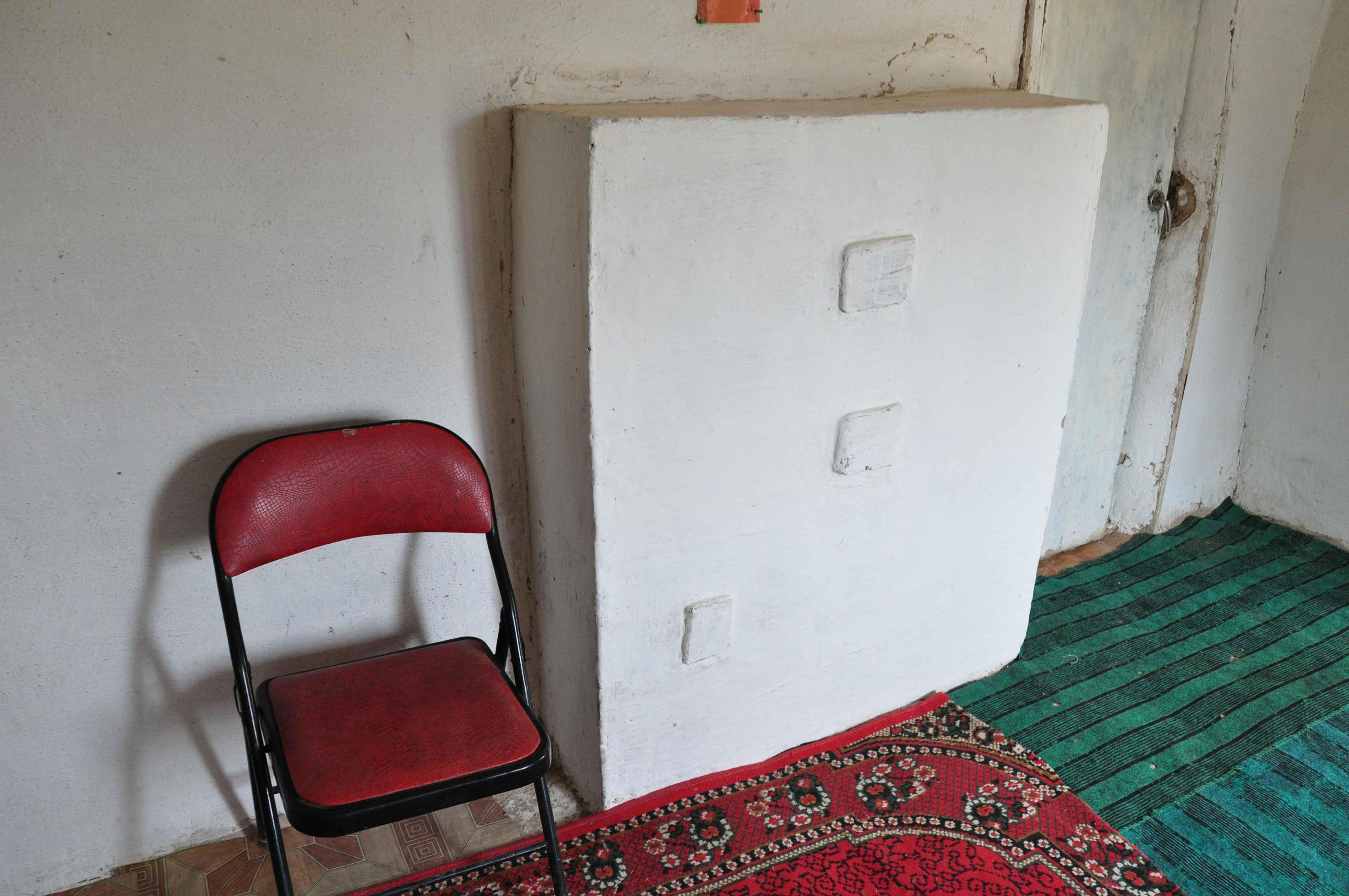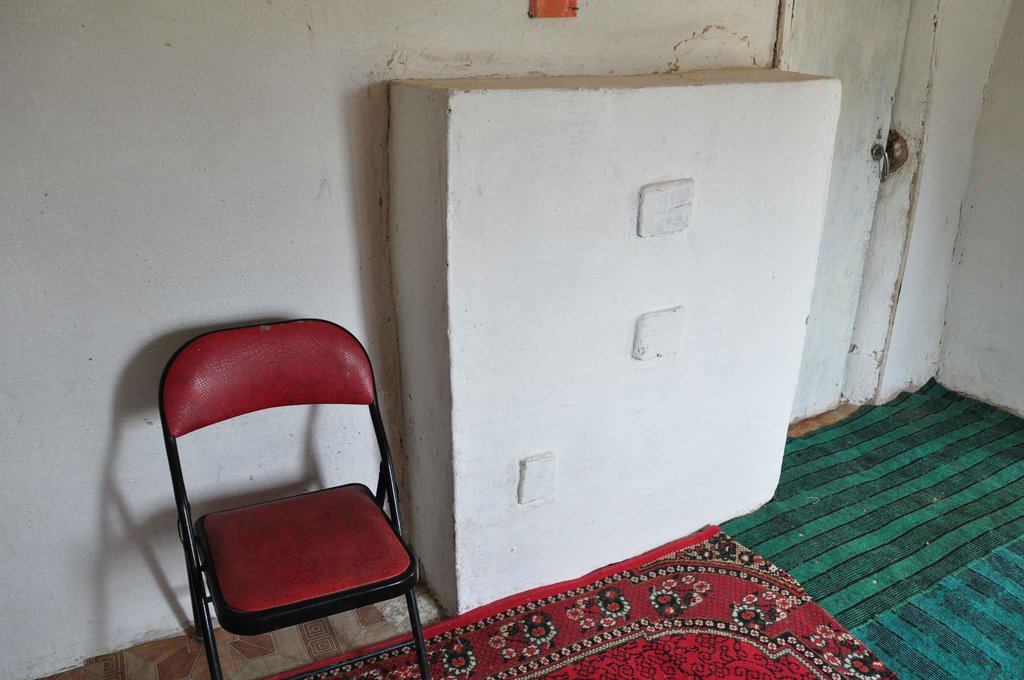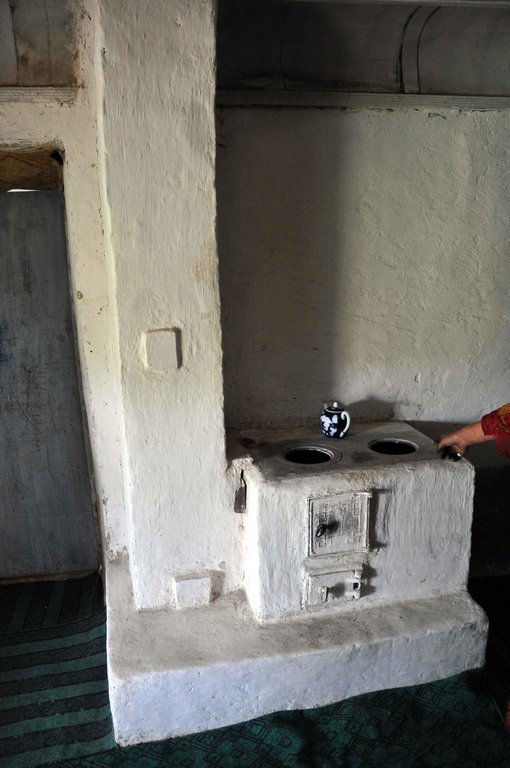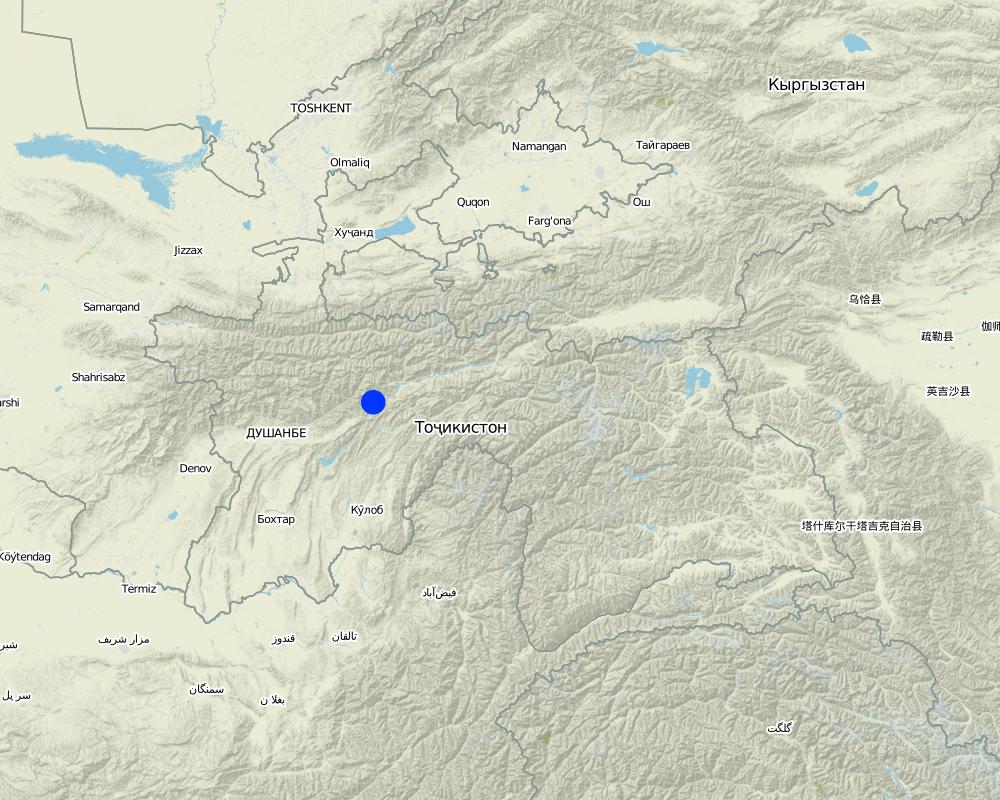Two Room Stove [Тажикистан]
- Шинийг нээх:
- Шинэчлэх:
- Эмхэтгэгч: shane stevenson
- Хянан тохиолдуулагч: –
- Хянагчид: David Streiff, Alexandra Gavilano
technologies_1518 - Тажикистан
Бүлгүүдийг үзэх
Бүгдийг дэлгэх Бүгдийг хаах1. Ерөнхий мэдээлэл
1.2 Технологийг үнэлэх, баримтжуулах ажилд хамаарах мэдээлэл өгсөн хүмүүс, байгууллагуудын холбоо барих мэдээлэл
ГТМ мэргэжилтэн:
Pochoev Mirzokurbon
CAMP
Тажикистан
Технологи баримтжуулах/үнэлэх ажилд дэмжлэг үзүүлсэн байгууллага(ууд)-ын нэр (шаардлагатай бол)
CAMP - Central Asian Mountain Partnership (CAMP - Central Asian Mountain Partnership) - Киргизстан1.3 ВОКАТ-аар баримтжуулсан өгөгдлийг ашиглахтай холбоотой нөхцөл
Эмхэтгэгч болон гол мэдээлэгч хүн(хүмүүс) WOCAT аргачлалаар баримтжуулсан мэдээллийг ашиглахтай холбоотой нөхцлийг хүлээн зөвшөөрсөн:
Тийм
1.5 ГТМ Арга барилын Асуулга (ууд) руу хандах (ВОКАТ ашиглан баримтжуулсан)
2. ГТМ Технологийн тодорхойлолт
2.1 Технологийн товч тодорхойлолт
Технологийн тодорхойлолт:
A brick stove that is built into the existing internal wall, that will heat the two rooms and can be used for cooking.
2.2 Технологийн дэлгэрэнгүй тодорхойлолт
Тодорхойлолт:
The 2-room stove is a brick based structure that filters hot air into a second room, hence maximising the heating potential of the fuel. The basic stove is built of fire bricks, house bricks, cement and coated with a natural mix of straw and mud. It is a traditional concept based upon former soviet stoves, that was modernised and adapted to improve the energy efficiency, and make use of the materials that are available to the people. It is able to burn coal, wood, and tapac, and is designed to reduce the amount of natural resources used to meet the household energy needs.
Purpose of the Technology: The purpose of the 2-room stove is to replace the traditional cast iron pig style of stove, with a more modern and energy efficient stove that can be used effectively for cooking and the heating of two rooms. The 2-room stove is designed to filter the hot air between the rooms and the use the bricks as a thermal sink for heat retention. As most of the houses are made of mud bricks, the heat from the stove will conduct through the walls, which will act as radiators to emit warmth into the room. The 2-room stove also means that cooking activities can be conducted inside the house in a smoke free environment.
Establishment / maintenance activities and inputs: The stove requires basic training in construction by a skilled technician, however after a three day training course the local trades people are able to build their own stoves with limited supervision. The stove is constructed from 45 fire bricks and 400 household bricks, the hot plate and stove doors are bought second hand from the markets, and metal bars are used to reinforce the structure. There are two smoke vents in the wall between the two rooms to allow the smoke to filter its way along the snake like chimney until it vents through the roof. The final structure is coated in straw and mud which acts as an insulation layer.
Natural / human environment: There is a high reliance on natural resources in Shahtuti Bolo. The average family burns several tons of tapac (straw dung mix) and wood each year. The surrounding mountain area is sparsely vegetated and does not even provide enough fuel for the village during the harsh winter months. This is supplemented by buying wood from the neighbouring villages. One tapac weighs one kilo, this is organic matter that can no longer be used for soil enhancement, but for fuel purposes. It is estimated that the 2-room stove will reduce the amount of fuel burnt by 20-40% depending upon the household.
2.3 Технологийн гэрэл зураг
2.5 Энэ үнэлгээнд хамрагдсан технологийг хэрэгжүүлсэн улс орон/ бүс нутаг/ байршил
Улс:
Тажикистан
Улс/аймаг/сум:
Hakimi Jamoat, Nurobod
Байршлын дэлгэрэнгүй тодорхойлолт:
Regional Subordination of Tajikistan
Технологи өргөн дэлгэрсэн эсхийг тодорхойл:
- газар дээр жигд тархсан
Хэрэв талбайн хэмжээ тодорхойгүй бол талбайн хэмжээг ойролцоогоор тодорхойлно уу:
- 0.1-1 км2
Тайлбар:
The village of Shahtuti Bolo
Map
×2.6 Хэрэгжсэн хугацаа
Байгуулсан тодорхой оныг мэдэхгүй бол баримжаа хугацааг тодорхойл:
- <10 жилийн өмнө (саяхны)
2.7 Технологийн танилцуулга
Технологийг хэрхэн нэвтрүүлснийг тодорхойл:
- Гадны төсөл/хөтөлбөрийн дэмжлэгтэйгээр
Тайлбар (төслийн төрөл г.м.):
The two room stove is modernisation of a traditional design, therefore the concept is not new to the people.
3. ГТМ технологийн ангилал
3.1 Технологийн үндсэн зорилго (ууд)
- reduce energy
3.2 Технологи нэвтрүүлсэн газрын одоогийн газар ашиглалтын хэлбэр(үүд)

Тариалангийн талбай
Жилд ургамал ургах улирлын тоо:
- 1
Тодорхойлно уу:
Longest growing period in days: 180Longest growing period from month to month: April - October
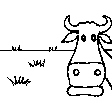
Бэлчээрийн газар
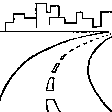
Суурьшил, дэд бүтэц
- Хот суурин, барилга
Нэмэлт мэдээлэл:
The technology is implemented in the households
Тайлбар:
Major land use problems (compiler’s opinion): The over exploitation of natural resources that have lead to soil erosion and degradation of the soil structure.
Major land use problems (land users’ perception): The land has become increasingly unproductive over the last few decades. There is not enough pasture to feed our animals.
Constraints of settlement / urban
3.5 Технологи ГТМ-ийн аль бүлэгт хамаарах вэ
- Эрчим хүч хэмнэх технологи
3.6 Технологийг бүрдүүлэх ГТМ арга хэмжээ
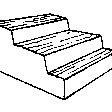
Барилга байгууламжийн арга хэмжээ
- S11: Бусад
Тайлбар:
Main measures: structural measures
3.7 Технологид харгалзах газрын доройтлын төрөл

хөрс усаар эвдрэх
- Wt: Хөрсний гадаргын угаагдал
- Wg: Гуу жалгын элэгдэл
- Wm: Хөрсний нуралт, шилжилт
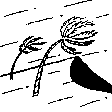
хөрс салхиар эвдрэх
- Et: Хөрсний гадаргын зөөгдөл
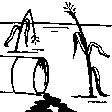
хөрсний химийн доройтол
- Cn: Үржил шим ба ялзмаг буурах (элэгдлийн шалтгаангүй)
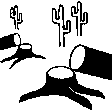
биологийн доройтол
- Bc: Ургамлан нөмрөг багасах
- Bh: Амьдрах орчин доройтох
- Bq: биомасс буурах
Тайлбар:
Main type of degradation addressed: Wt: loss of topsoil / surface erosion, Wg: gully erosion / gullying, Wm: mass movements / landslides, Et: loss of topsoil, Cn: fertility decline and reduced organic matter content, Bc: reduction of vegetation cover, Bh: loss of habitats
Secondary types of degradation addressed: Bq: quantity / biomass decline
Main causes of degradation: soil management (Failure to use organic fertilisers), deforestation / removal of natural vegetation (incl. forest fires) (Removal of natural resources to meet local energy needs.), over-exploitation of vegetation for domestic use (as above), overgrazing (Areas became over grazed as productivity declined), disturbance of water cycle (infiltration / runoff) (removal of vegetation leads to increased run off from the mountain slopes.), poverty / wealth (There is a lack of money for investment), labour availability (Two thirds of the households in the village have people working abroad.), war and conflicts (There has been substantial political unrest in the area.)
Secondary causes of degradation: Heavy / extreme rainfall (intensity/amounts) (There is a perception that there are more extreme rainfall events.), population pressure (Popualtion in the area is increasing), education, access to knowledge and support services (Lack of knowledge on good land management.)
3.8 Газрын доройтлоос урьдчилан сэргийлэх, сааруулах ба нөхөн сэргээх
Газрын доройтолтой холбоотойгоор Технологи ямар зорилго тавьсан болохыг тодорхойл:
- газрын доройтлоос урьдчилан сэргийлэх
- Газрын доройтлыг бууруулах
Тайлбар:
Main goals: mitigation / reduction of land degradation
Secondary goals: prevention of land degradation
4. Техникийн нөхцөл, хэрэгжүүлсэн үйл ажиллагаа, материал ба зардал
4.1 Технологийн техник зураг
Техник тодорхойлолт (техник зургийн тайлбар):
A simple view of the main part of the stove used for cooking. There are two cast iron doors, the lower is for air circulation and the upper is the combustion chamber for the fuel. There are two hot plates for cooking. The smoke travels from the fire vent towards the chimney and then through a 10cm sq hole to the brick structure on the other side. The smoke snakes it way around the the second structure which acts as a radiator as the bricks warm up. The smoke then returns into the chimney in the main room, heating the chimney as it vents.
Location: Shahtuti Bolo. Nurobod
Date: 13.07.2011
Technical knowledge required for field staff / advisors: high (The technical design requires a high level of knowledge)
Technical knowledge required for land users: moderate (With training the land user would be able to build their own two room stove)
Main technical functions: reduces the amount of dung and wood used as fuel.
Structural measure: 2-room stove
Construction material (other): fire bricks and regular house bricks, covered in mud are the main materials.
Зохиогч:
S. stevenson, CAMP Kuhiston, apt19 h 131 Rudaki ave, 734003, Dushanbe
4.2 Материал болон зардалд хамаарах ерөнхий мэдээлэл
Үнэ өртөг, оруулсан хувь нэмрийг хэрхэн тооцсоныг тодорхойл:
- Технологийн нэгж тус бүр
Нэгжийг тодорхойл:
Stove
Үнэ өртөгийг тооцоход ашигласан мөнгөн нэгж:
- Ам.доллар
Хөлсний ажилчны нэг өдрийн цалингийн хэмжээг тодорхойлно уу:
4.00
4.3 Бий болгох үйл ажиллагаа
| Үйл ажиллагаа | Хугацаа (улирал) | |
|---|---|---|
| 1. | Construction of stove | any |
| 2. | None | None |
4.4 Бий болгоход шаардагдсан зардал, хөрөнгийн өртөг
| Зардлын нэр, төрөл | Хэмжих нэгж | Тоо хэмжээ | Нэгжийн үнэ | Зардал бүрийн нийт өртөг | Нийт дүнгээс газар ашиглагчийн төлсөн % | |
|---|---|---|---|---|---|---|
| Хөдөлмөр эрхлэлт | Construction of stove | Persons/day | 6.0 | 5.333333 | 32.0 | 100.0 |
| Тоног төхөөрөмж | Tools | pieces | 5.0 | 4.0 | 20.0 | |
| Барилгын материал | Bricks | bricks | 400.0 | 0.225 | 90.0 | |
| Барилгын материал | Fire bricks | bricks | 45.0 | 1.4 | 63.0 | |
| Барилгын материал | Metal bar | bars | 5.0 | 3.4 | 17.0 | |
| Барилгын материал | Fire cement | cub m | 3.0 | 8.333333 | 25.0 | |
| Барилгын материал | Ceramic tiles | tiles | 24.0 | 1.0 | 24.0 | |
| Барилгын материал | Metal cooking plates | plates | 1.0 | 63.0 | 63.0 | |
| Барилгын материал | Stove doors | doors | 2.0 | 22.5 | 45.0 | |
| Бусад | Transports | vans | 1.0 | 50.0 | 50.0 | |
| Технологи бий болгох нийт үнэ өртөг | 429.0 | |||||
| Технологи бий болгох нийт үнэ өртөг, ам.доллар | 429.0 | |||||
Тайлбар:
Duration of establishment phase: 1 month(s)
4.5 Арчилгаа/ урсгал үйл ажиллагаа
| Үйл ажиллагаа | Хугацаа/ давтамж | |
|---|---|---|
| 1. | Cleaning the stove | annually |
4.6 Арчилгаа/урсгал ажилд шаардагдсан зардал, хөрөнгийн өртөг (нэг жилд)
| Зардлын нэр, төрөл | Хэмжих нэгж | Тоо хэмжээ | Нэгжийн үнэ | Зардал бүрийн нийт өртөг | Нийт дүнгээс газар ашиглагчийн төлсөн % | |
|---|---|---|---|---|---|---|
| Хөдөлмөр эрхлэлт | Cleaning the stove | Persons/day | 1.0 | 4.0 | 4.0 | 100.0 |
| Технологийн арчилгаа/урсгал үйл ажиллагаанд шаардагдах нийт үнэ өртөг | 4.0 | |||||
| Технологи арчилах ба урсгал ажлын нийт үнэ өртөг, ам.доллар | 4.0 | |||||
Тайлбар:
The costs are based upon 2011 prices and are based on constructing only one stove.
4.7 Зардалд нөлөөлж байгаа хамгийн чухал хүчин зүйл
Өртөг, зардалд нөлөөлөх гол хүчин зүйл:
The main cost is the fire bricks. These have to be transported from the capital. However, in some regions of Tajikistan, materials are available from stoves that were constructed several decades ago which could be reused.
5. Байгаль ба нийгмийн нөхцөл
5.1 Уур амьсгал
Жилийн нийлбэр хур тундас
- < 250 мм
- 251-500 мм
- 501-750 мм
- 751-1,000 мм
- 1,001-1,500 мм
- 1,501-2,000 мм
- 2,001-3,000 мм
- 3,001-4,000 мм
- > 4,000 мм
Агро-уур амьсгалын бүс
- хагас хуурай
Thermal climate class: temperate
5.2 Гадаргын хэлбэр
Дундаж налуу:
- хавтгай (0-2 %)
- бага зэрэг налуу (3-5 %)
- дунд зэрэг налуу (6-10 % )
- хэвгий (11-15 %)
- налуу (16-30 %)
- их налуу (31-60 % )
- эгц налуу (>60 %)
Гадаргын хэлбэр:
- тэгш өндөрлөг / тал
- нуруу
- уулын энгэр
- дов толгод
- бэл
- хөндий
Өндрийн бүслүүр:
- 0-100 д.т.д. м.
- 101-500 д.т.д. м.
- 501-1,000 д.т.д м.
- 1,001-1,500 д.т.д м.
- 1,501-2,000 д.т.д м.
- 2,001-2,500 д.т.д. м.
- 2,501-3,000 д.т.д. м.
- 3,001-4,000 д.т.д м.
- > 4,000 д.т.д. м.
Технологи дараах асуудалд хандсан эсэхийг тодорхойл:
- хамааралгүй
5.3 Хөрс
Хөрсний дундаж зузаан:
- маш нимгэн (0-20 см)
- нимгэн (21-50 см)
- дунд зэрэг зузаан (51-80 см)
- зузаан (81-120 cм)
- маш зузаан (>120 cм)
Хөрсний бүтэц (өнгөн хөрс):
- бүдүүн/ хөнгөн (элсэрхэг)
Өнгөн хөрсөнд агуулагдах ялзмаг:
- бага (<1 % )
Боломжтой бол хөрсний бүрэн тодорхойлолт, боломжит мэдээллийг өгнө үү, жишээ нь хөрсний төрөл, хөрсний урвалын орчин/хүчиллэг байдал, катион солилцох чадавхи, азотын хэмжээ, давсжилт г.м.
Soil fertility is low - medium
Soil drainage / infiltration is poor
Soil water storage capacity is low-medium
5.4 Усны хүртээмж ба чанар
Гүний усны түвшин:
< 5 м
Гадаргын усны хүртээмж:
хангалтгүй/ байхгүй
Усны чанар (цэвэршүүлээгүй):
муу чанарын ундны ус (цэвэршүүлэх шаардлагатай)
Усны чанар, нөөцийн талаархи тайлбар ба бусад тодорхойлолт:
Availability of surface water: is good for the village because there is a stream and medium for other areas which have access to te stream.
5.5 Биологийн олон янз байдал
Зүйлийн олон янз байдал:
- Бага
5.6 Технологи нэвтрүүлсэн газар ашиглагчдын тухай мэдээлэл
Бусад эх үүсвэрээс олох орлого:
- Нийт орлогын 10-50 %
Чинээлэг байдлын түвшин:
- нэн ядуу
- ядуу
Хувь хүн эсвэл бүлэг:
- Хувь хүн / өрх
Хүйс:
- эмэгтэй
- эрэгтэй
Газар ашиглагчдын бусад шинж чанарыг тодорхойл:
Land users applying the Technology are mainly disadvantaged land users
Difference in the involvement of women and men: Training is provided on he construction of the stove. This is only attended by men.
Population density: 50-100 persons/km2
Annual population growth: 2% - 3%
80% of the land users are poor and own 95% of the land.
20% of the land users are poor and own 5% of the land.
Off-farm income specification: 44 out of the 58 households are reliant on remittances from Russia, however all the families have livestock which they buy and sell in the local markets and a small household plot for vegetables.
5.7 Газар ашиглагчийн технологи нэвтрүүлсэн газрын дундаж талбайн хэмжээ
- < 0.5 га
- 0.5-1 га
- 1-2 га
- 2-5 га
- 5-15 га
- 15-50 га
- 50-100 га
- 100-500 га
- 500-1,000 га
- 1,000-10,000 га
- > 10,000 га
Энэ талбай том, жижиг, дунд алинд хамаарах вэ (орон нутгийн нөхцөлд харгалзуулна уу)?
- бага-хэмжээний
5.8 Газар эзэмшил, газар ашиглах эрх, ус ашиглах эрх
Газар өмчлөл:
- төрийн
Газар ашиглах эрх:
- нэгдлийн хэлбэрээр (зохион байгуулалттай)
Тайлбар:
Four people have the majority of the land user rights in a village of 58.
5.9 Дэд бүтэц, үйлчилгээний хүртээмж
эрүүл мэнд:
- ядуу
- дунд зэргийн
- сайн
боловсрол:
- ядуу
- дунд зэргийн
- сайн
техник зөвлөгөө:
- ядуу
- дунд зэргийн
- сайн
хөдөлмөр эрхлэлт (жишээ нь, ХАА-аас өөр):
- ядуу
- дунд зэргийн
- сайн
зах зээл:
- ядуу
- дунд зэргийн
- сайн
эрчим хүчний хангамж:
- ядуу
- дунд зэргийн
- сайн
зам тээвэр:
- ядуу
- дунд зэргийн
- сайн
усан хангамж ба ариутгал:
- ядуу
- дунд зэргийн
- сайн
санхүүгийн үйлчилгээ:
- ядуу
- дунд зэргийн
- сайн
6. Үр нөлөө ба дүгнэлт
6.1 Технологийн талбайд үзүүлсэн нөлөө
Нийгэм-эдийн засгийн үр нөлөө
Үйлдвэрлэл
газар тариалангийн үйлдвэрлэл
модлогийн бүтээмж
эрчим хүчний үйлдвэрлэл
Тайлбар/ тодорхой дурьдах:
Improved cooking conditions i.e. no smoke.
Орлого, зарлага
ажлын хэмжээ
Нийгэм-эдийн засгийн бусад үр нөлөө
Demand on natural resources
Тайлбар/ тодорхой дурьдах:
On average around 30% reduction
Нийгэм-соёлын үр нөлөө
эрүүл мэндийн байдал
Тайлбар/ тодорхой дурьдах:
Do not need to cook outside and improve the internal living conditions.
олон нийтийн институц
Тайлбар/ тодорхой дурьдах:
Leaves natural resources for the community benefit.
маргааныг шийдвэрлэх
Тайлбар/ тодорхой дурьдах:
Helps prevent inter village conflicts over natural resources.
нийгэм, эдийн засгийн хувьд эмзэг бүлгийнхний нөхцөл байдал
Тайлбар/ тодорхой дурьдах:
The project is targeted at the most vulnerable in the community.
Livelihood and human well-being
Тайлбар/ тодорхой дурьдах:
It has reduced the time, effort and money spent on fuel whcih can be up to 50% of the household's budget in extreme cases. It has improved the heating in the household and created a smoke free environment for cooking.
Экологийн үр нөлөө
Хөрс
хөрсөн бүрхэвч
Биологийн олон янз байдал: ургамал, амьтан
газрын дээрхи / доорхи карбон
Тайлбар/ тодорхой дурьдах:
Reduction in the burning of dung.
6.3 Технологийн уур амьсгалын өөрчлөлт, цаг агаарын гамшигт үзэгдэлд өртөх байдал ба эмзэг байдал (газар ашиглагчийн бодлоор)
Уур амьсгалын аажим өөрчлөлт
Уур амьсгалын аажим өөрчлөлт
| Улирал | Өсөх эсвэл буурах | Технологи түүний нөлөөг хэрхэн бууруулж байна? | |
|---|---|---|---|
| жилийн дундаж температур | Өсөлт | сайн |
Уур амьсгалаас хамаарах аюул (гамшиг)
Цаг уурын гамшигт үзэгдэл
| Технологи түүний нөлөөг хэрхэн бууруулж байна? | |
|---|---|
| орон нутгийн аадар бороо | сайн |
| орон нутгийн салхин шуурга | сайн |
Уур амьсгалын гамшиг
| Технологи түүний нөлөөг хэрхэн бууруулж байна? | |
|---|---|
| ган гачиг | сайн |
Усзүйн гамшиг
| Технологи түүний нөлөөг хэрхэн бууруулж байна? | |
|---|---|
| усны үер (гол) | сайн |
Уур амьсгалд хамаарах бусад үр дагавар
Уур амьсгалд хамаарах бусад үр дагавар
| Технологи түүний нөлөөг хэрхэн бууруулж байна? | |
|---|---|
| цргалтын хугацаа багасах | сайн |
Тайлбар:
The stove is able to take other fuel sources in the event that natural resources are not available.
6.4 Өртөг ба ашгийн шинжилгээ
Бий болгох зардалтай харьцуулахад ямар ашиг өгсөн бэ (газар ашиглагчийн бодлоор)?
Богино хугацаанд эргэн төлөгдөх байдал:
сөрөг
Урт хугацаанд эргэн төлөгдөх байдал:
маш эерэг
Арчилгаа/урсгал зардалтай харьцуулахад ямар ашиг өгсөн бэ (газар ашиглагчийн бодлоор)?
Богино хугацаанд эргэн төлөгдөх байдал:
нөлөө үл мэдэг
Урт хугацаанд эргэн төлөгдөх байдал:
эерэг
Тайлбар:
There is a high initial outlay in the building materials and labour costs, but once the two room stove is constructed it only requires annual cleaning which can be done via hatches already included in the design.
6.5 Технологи нэвтрүүлэлт
- 1-10 %
Боломжтой бол, тоогоор илэрхийл (өрхийн тоо эсвэл бүрхэх талбай):
10 households in an area of 0.1 - 1 km2 (ca. 596 habitants)
Технологи нэвтрүүлсэн хүмүүсээс хэд нь өөрийн хүчээр технологийг хэрэгжүүлсэн бэ, өөрөөр хэлбэл гадны тусламж дэмжлэг авалгүйгээр?
- 0-10%
Тайлбар:
100% of land user families have adopted the Technology with external material support
Comments on acceptance with external material support: All land users given support have constructed a stove. The project will build a further 11 stoves in the local district for the most vulnerable families.
There is no trend towards spontaneous adoption of the Technology
Comments on adoption trend: To early in the project to say, but several memebers of the community are trained to build the stove.
6.7 Технологийн давуу тал/боломжууд
| Газар ашиглагчдын тодорхойлсон давуу тал/боломжууд |
|---|
|
It keep the house warm and for longer. How can they be sustained / enhanced? Thermal insulation techniques and energy efficiency training may support reduced fuel use. |
| I do not have to cook outside in the winter months. |
| It is easy to clean. |
| Эмхэтгэгч, бусад мэдээлэл өгсөн хүмүүсийн өнцгөөс тодорхойлсон давуу тал/боломжууд |
|---|
|
It improved the household heating system dramatically, as the previous cast iron stove does not retain the heat after the fire dies. How can they be sustained / enhanced? The room could be insulated using traditional techniques or modern materials that are starting to appear on the market. |
|
The brick design will retain the heat for several hours and will heat two rooms. How can they be sustained / enhanced? Doors and windows in the rooms could be sealed to prevent drafts. |
|
The stove will last for 25yrs with minimal maintenance. How can they be sustained / enhanced? If the stove became popular a small brick making factory could be established. |
6.8 Технологийн дутагдалтай/сул тал/аюул болон тэдгээрийг хэрхэн даван туулах арга зам
| Газар ашиглагч нарын тодорхойлсон сул тал/ дутагдал/ эрсдэл | Тэдгээрийг хэрхэн даван туулах вэ? |
|---|---|
| It is expensive, and I need an expert to help me. | Remittances could be used to fund the initial set up costs. |
| Эмхэтгэгч, бусад мэдээлэл өгсөн хүмүүсийн өнцгөөс тодорхойлсон сул тал/ дутагдал/ эрсдэл | Тэдгээрийг хэрхэн даван туулах вэ? |
|---|---|
| There is a high initial investment that has required project funding. | Collective building of the stoves will reduce the cost. Micro-finance loans could be made available to help cover the initial costs. |
| The stove requires technical training in its construction. | A booklet could be produced to support self building of the stoves. |
7. Ном зүй ба холбоосууд
7.1 Мэдээлэл цуглуулсан арга/эх үүсвэр
Холбоос ба модулууд
Бүгдийг дэлгэх Бүгдийг хаахХолбоосууд
Холбоос байхгүй байна
Модулууд
Модуль байхгүй байна


